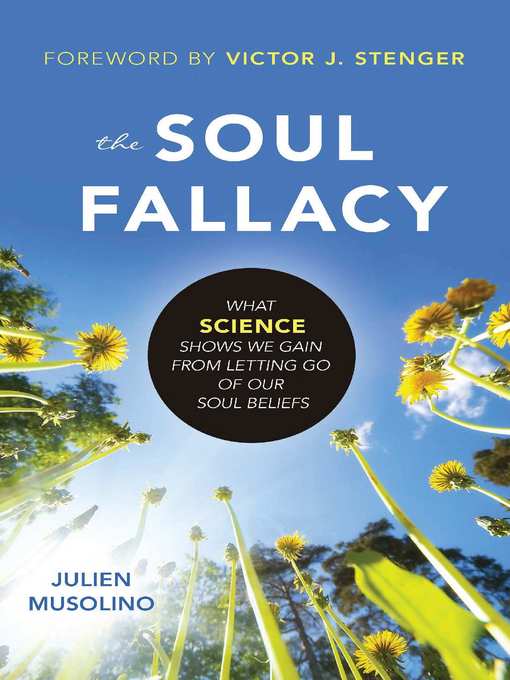- All Fiction
- Military Fiction
- Historical Fiction
- Mystery & Thriller
- Romance
- See all fiction collections
The Soul Fallacy
What Science Shows We Gain From Letting Go of Our Soul Beliefs
Much more than chronicling the demise of the traditional soul, the book explores where soul beliefs come from, why they are so widespread culturally and historically, how cognitive science offers a naturalistic alternative to religious conceptions of mind, and how postulating the existence of a soul amounts to making a scientific claim.
Although the new scientific view of personhood departs radically from traditional religious conceptions, the author shows that a coherent, meaningful, and sensitive appreciation of what it means to be human remains intact. He argues that we do not lose anything by letting go of our soul beliefs and that we even have something to gain.
Throughout, the book takes a passionate stand for science and reason. It also offers a timely rejoinder to recent claims that science supports the existence of the soul and the afterlife.
-
Creators
-
Publisher
-
Release date
January 6, 2015 -
Formats
-
Kindle Book
-
OverDrive Read
- ISBN: 9781616149635
-
EPUB ebook
- ISBN: 9781616149635
- File size: 1053 KB
-
-
Languages
- English
-
Reviews
-
Publisher's Weekly
November 3, 2014
Musolino, a psychologist at Rutgers University, challenges the dualistic hypothesis that the soul is “detachable” from the body. He defines the hypothesis clearly—“Human beings are composed of a physical body and an immaterial, psychologically potent, and immortal soul. Body and soul are distinct entities and the soul can continue to exist and function independently from the body after we die”—and offers compelling data to demonstrate that such a belief is utterly inconsistent with a scientific perspective. Along the way, he carefully explains how science is dependent upon a materialistic, rather than a supernatural, worldview; how easy it can be to fool ourselves into believing things that are untrue; and how scientists approach the concept of falsifiability. Musolino concludes that acknowledging the nonexistence of the soul should not be troubling since such a position can actually enrich life enormously. He also describes how belief in a soul has clouded our debates about many important issues, including abortion, end of life decisions, and the nature of our criminal justice system. Although the book is engaging, it is repetitive and focuses on rebutting claims made by a narrow set of popular texts by “New Dualists.” Agent: Gillian MacKenzie, Gillian MacKenzie Agency.
-
Formats
- Kindle Book
- OverDrive Read
- EPUB ebook
Languages
- English
Loading
Why is availability limited?
×Availability can change throughout the month based on the library's budget. You can still place a hold on the title, and your hold will be automatically filled as soon as the title is available again.
The Kindle Book format for this title is not supported on:
×Read-along ebook
×The OverDrive Read format of this ebook has professional narration that plays while you read in your browser. Learn more here.

